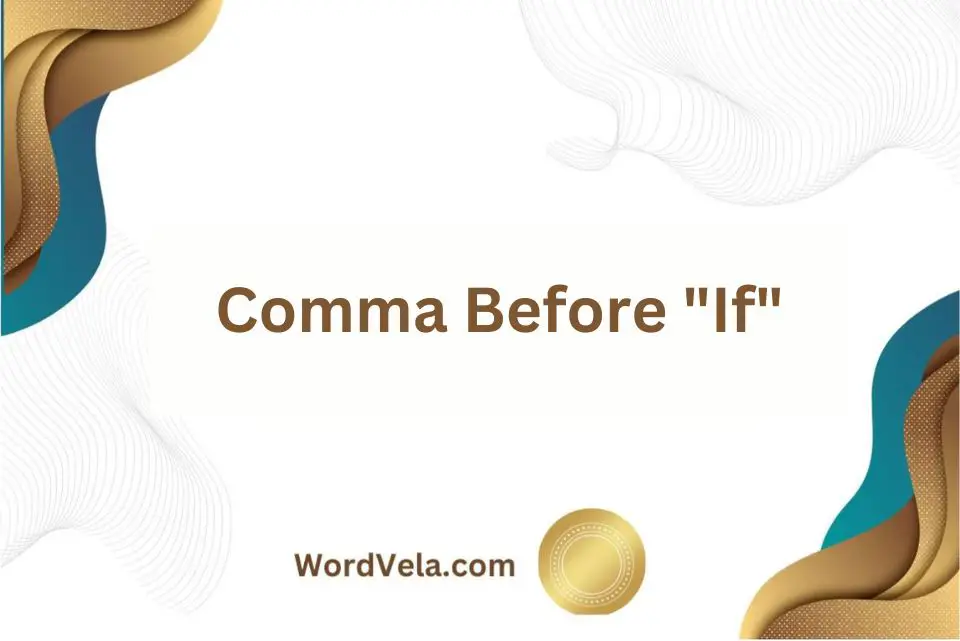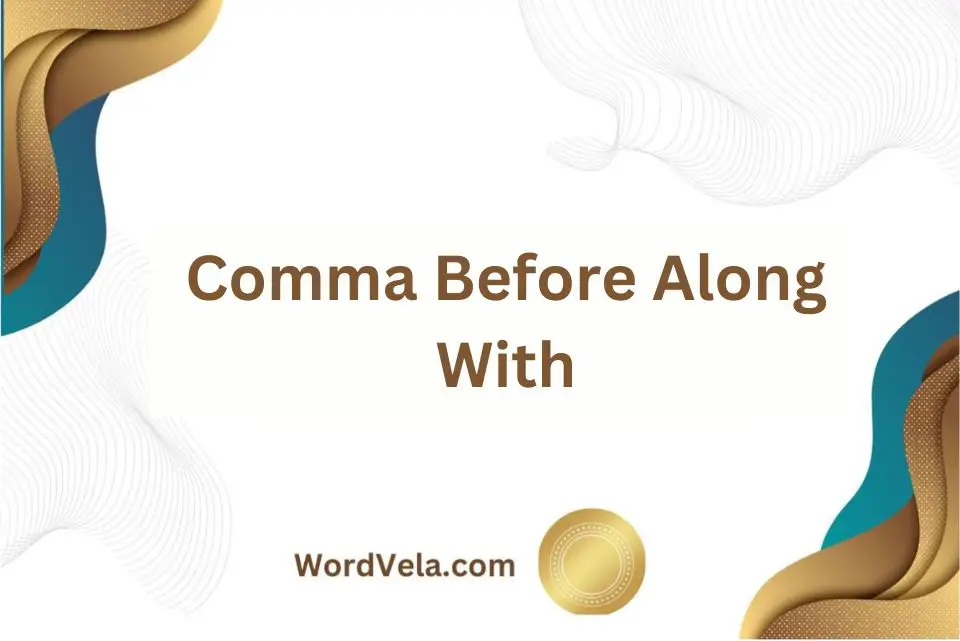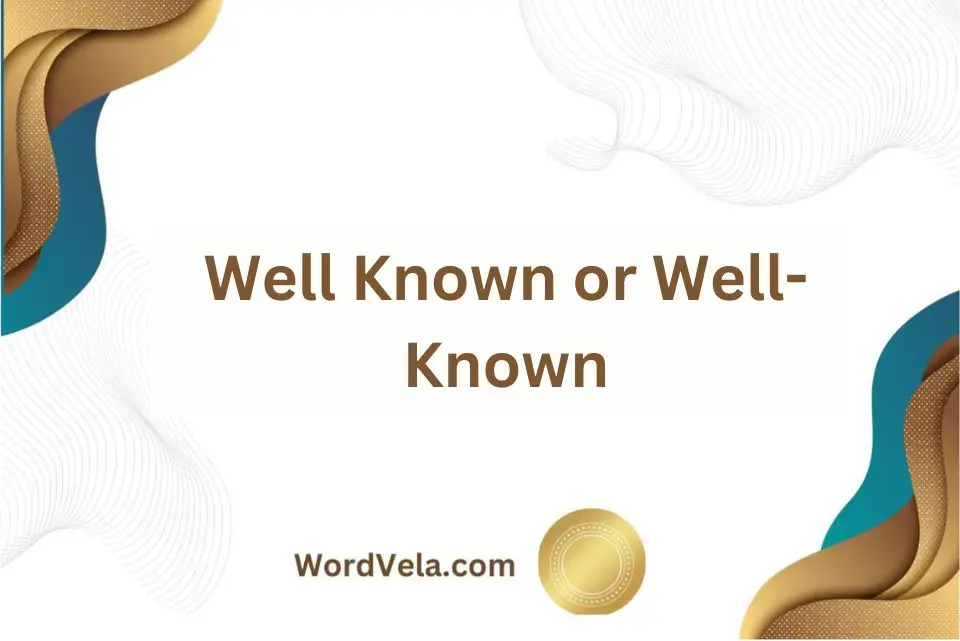Comma Before If: When it comes to using commas before the word “if,” clarity is key.
In general, if “if” introduces a dependent clause at the beginning of a sentence, you should use a comma after it.
Table of Contents
Do You Put a Comma Before If:
You don’t always need a comma before “if.”
Here’s a breakdown:
If clause starts the sentence: In this case, you** always** need a comma after “if.”
If clause follows the main clause: Here, a comma is usually not needed unless the if-clause is very long or creates a strong pause.
How to Use Comma with If?
Here’s the deal with commas and “if”:
Comma after “if”: You use a comma after “if” when it introduces the dependent clause at the beginning of the sentence. This dependent clause needs the main clause to make complete sense.
- Example: If you finish your homework, you can play outside. (“If you finish your homework” depends on the main clause “you can play outside” for complete meaning.)
No comma after “if”: If “if” comes after the main clause or introduces a non-essential phrase, you typically don’t need a comma.
- Example: I will visit the Tower if I go to London. (“If I go to London” is not essential information in this sentence.)
Do You Put a Comma Before if Needed?
In most cases, you won’t need a comma before “if.”
Here’s why:
“If” as a conjunction: “If” usually functions as a subordinating conjunction that introduces a dependent clause. Dependent clauses rely on the main clause for complete meaning. Since they come after the main clause, they don’t typically require a comma.
Flow and Readability: Punctuation, including commas, helps with reading flow. If the sentence reads smoothly without a comma before “if,” it’s generally not needed.
Is There a Comma Before as If?
The decision to use a comma before “as if” depends on its function in the sentence.
Here’s the breakdown:
No comma needed:
“As if” acts as a prepositional phrase modifying a noun or adjective. In this case, it functions like a unit and doesn’t need separation by a comma.
Comma needed:
“As if” introduces a dependent clause that adds extra information. This dependent clause often compares or contrasts the situation with reality.
Is if So Followed by A Comma?
Whether you use a comma before “so” depends on its role in the sentence:
Comma needed:
“So” connects two independent clauses: If “so” joins two complete thoughts (independent clauses), you need a comma before it. Here, “so” acts like a coordinating conjunction (similar to “and” or “but”).
No comma needed:
“So” introduces a dependent clause: If “so” introduces a dependent clause explaining the reason for the first clause, you typically don’t use a comma. Dependent clauses rely on the main clause for complete meaning.
How to Use if In a Sentence?
The word “if” is a powerful tool for creating conditional sentences, expressing uncertainty, and introducing hypothetical situations.
Here’s how to use “if” in a sentence:
This is the most common use of “if.” “If” introduces the condition or hypothesis, and the rest of the sentence describes the outcome if that condition is met. There are different types of conditional sentences depending on the likelihood of the condition:
Zero Conditional: Expresses a general truth. (If clause + present simple, main clause + present simple)
- Example: If you mix oil and water, they will separate.
First Conditional: Talks about a possible future situation. (If clause + present simple, main clause + will/future simple)
- Example: If you study hard, you will pass the exam.
Second Conditional: Discusses a hypothetical situation that is unlikely to happen in the present. (If clause + past simple, main clause + would + base verb)
- Example: If I won the lottery, I would travel around the world.
Third Conditional: Talks about a hypothetical situation that did not happen in the past. (If clause + past perfect, main clause + would have + past participle)
- Example: If I had studied harder, I would have passed the exam.
What Is the Grammar Structure of As If?
The grammar structure of “as if” can be broken down into two main functions:
Prepositional Phrase: Here, “as if” acts as a unit with the following noun or adjective to modify it. It functions similarly to an adverb clause.
Dependent Clause: In this role, “as if” introduces a dependent clause that provides additional information, often contrasting or comparing the situation with reality.
| Function | Structure | Example | Comma Before “As If”? |
|---|---|---|---|
| Prepositional Phrase | as if + noun/adjective | She danced with a grace as if weightless. | No |
| Dependent Clause | as if + dependent clause | He looked around nervously, as if expecting trouble. | Yes |
Conclusion and Final Thoughts!
Whether to put a comma before “if” ultimately depends on the specific sentence structure and intended meaning. Remember that clarity and readability are key when deciding on comma usage in your writing.
By understanding the rules and nuances associated with this punctuation mark, you can effectively enhance the overall quality of your writing.
So next time you’re unsure about using a comma before “if,” trust your instincts, refer back to these guidelines, and craft well-structured sentences that convey your message clearly.










Leave a Reply